Why Herbal Tea
Since we live in times where we eat, drink and breathe toxins into our bodies at a constant pace, it is very important that we get into a habit of consuming Herbal Tea. Not just this, we should also include herbs in our day-to-day food as these help in detoxifying our system. The best way to source these herbs is to grow your own herb garden at home. As most of these greens require low maintenance and grow easily even in balconies or terraces. This way you will always have an access to fresh, organic produce that is not chemically treated. Some herbs that I have planted in my house are holy basil (tulsi), mint, basil, coriander, lemongrass, curry leaves, parsley and celery. The joy of plucking your own herbs right from your garden and using it to make a wholesome cup of Herbal Tea is really unmatched.
Herbs used to make Herbal Tea
In most Indian houses, following are the combination of herbs that may be used in the Herbal Tea recipe:
Ginger + cardamomGinger + cardamom + cloves Mint + holy basil (tulsi)Ginger + mintOnly lemongrassOnly ginger
However, my homemade version of Herbal Chai includes:
GingerGreen cardamomLemongrassFresh mint leavesFresh holy basil leaves (tulsi) Cinnamon powder (occasionally)
In addition to the above, sometimes I also add ground cinnamon, fennel, nutmeg and cloves to my Herbal Tea. Once in a blue moon, I may add vanilla bean powder too. It is a good practice to keep on experimenting and rotating the ingredients once a while. This way there’s always going to be variety and you will not be bored of sipping on the same flavors in your Herbal Chai every time.
Herbal Tea Variations
There are many variations of the Herbal Tea recipe. Every individual may use different herbs as per their liking and taste. But the most common herbs which are used worldwide are mentioned in the above section. Apart from these, one can definitely go for lemongrass, galangal, pepper, cinnamon, vanilla, fennel seeds, ashwagandha leaf (an Ayurvedic herb), rose petals, nutmeg and honey as their Herbal Tea concoction. One very important point is to crush or powder the herbs-spices in the mortar and pestle otherwise you won’t get their flavor in the tea. The choice of herbs to be added in your Herbal Tea should depend on their medicinal value, availability as well as the climatic condition of your city. While ginger and cloves are heaty; mint, tulsi and rose petals are cooling. Moroever choose to make your herbal tea sans any tea leaves (or tea powder) and milk. Simply boil the herbs and teas in water to make a herbal tisane. Strain in cups and serve. Optionally you can add any sweetener of your choice.
More on Herbal Chai
I love the Galangal Tea as well, but since I hardly get galangal in my city, I avoid using it in the Herbal Tea. Fennel seeds are a common in the Herbal Tea that I make at home. Though I may never have used Ashwagandha leaves in my tea, I would recommend you to use it as it is good for dealing with stress, strengthening the nervous system and improving memory. What most home chefs do, is grind the herbs in a dry/coffee grinder and store the mixture in an air tight jar for daily use. A teaspoon of this mixture can be used to prepare your everyday cup of Herbal Tea with ease. You can have hot tea if you are in a cold climate or during winters. On a hot day or during summers, you can make your Herbal Tea without milk and refrigerate it before serving. You can also add ice cubes to your tea. This tea pairs really well with cookies, biscuits, cakes and wafers too. If you are interested in making your own tea blend, then this Masala Chai Powder will be of great help to you. Other than the Herbal Tea, I also love drinking this Masala Chai and Mumbai style Cutting Chai.
Expert Tips
Please be sure to rate the recipe in the recipe card or leave a comment below if you have made it. For more vegetarian inspirations, Sign Up for my emails or follow me on Instagram, Youtube, Facebook, Pinterest or Twitter. Ginger Tea Recipe (Adrak Chai) Turmeric Tea Recipe And Benefits Mint Tea (Pudina Tea) Kashmiri Kahwa Recipe | Kahwa Tea This Herbal Tea post from the archives first published in August 2013 has been republished and updated on 3 May 2022.
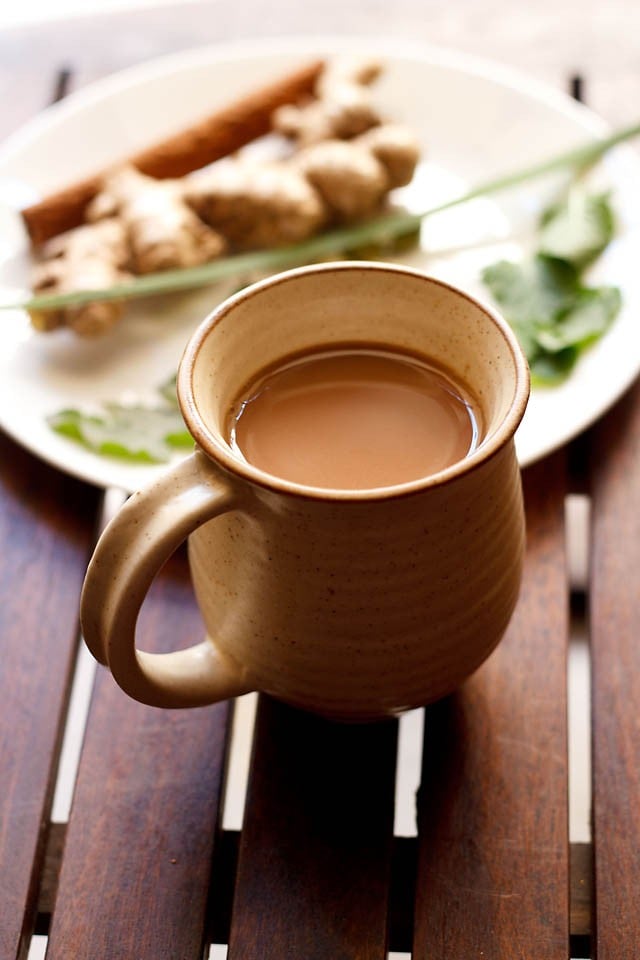
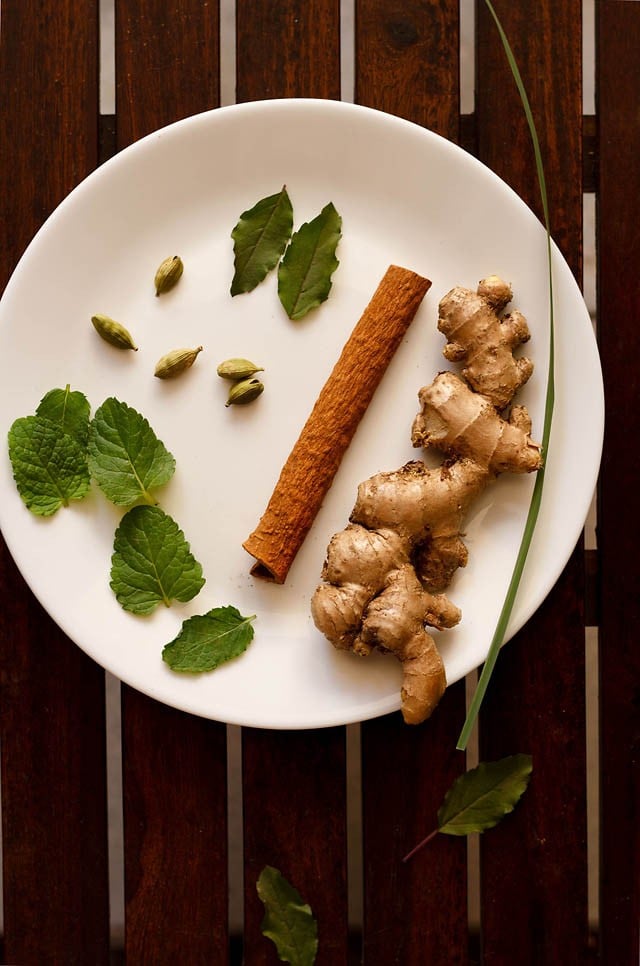
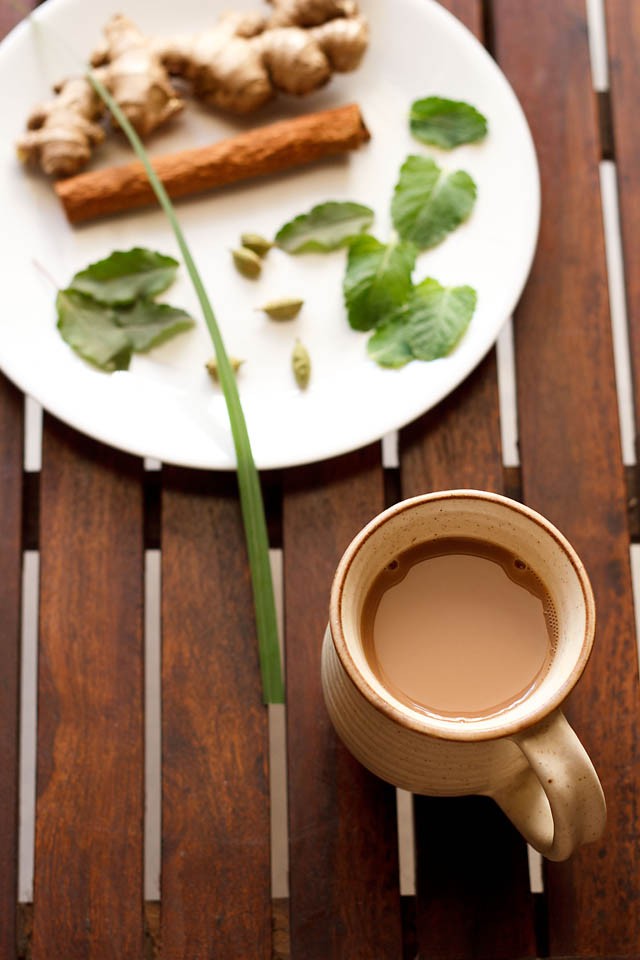
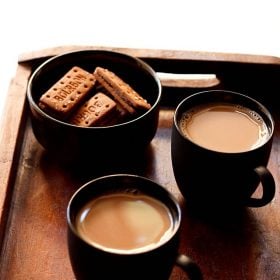
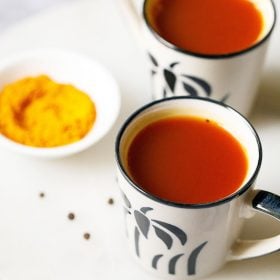
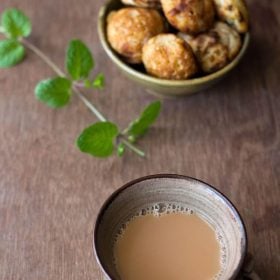
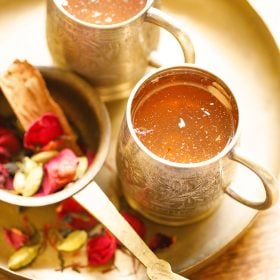
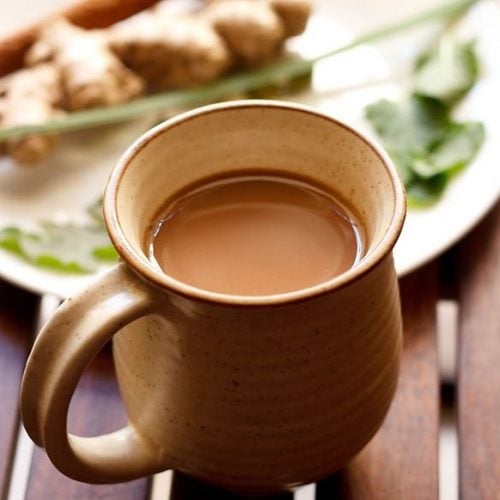
title: “Herbal Tea Herbal Chai " ShowToc: true date: “2024-10-28” author: “Martin Bedward”
Why Herbal Tea
Since we live in times where we eat, drink and breathe toxins into our bodies at a constant pace, it is very important that we get into a habit of consuming Herbal Tea. Not just this, we should also include herbs in our day-to-day food as these help in detoxifying our system. The best way to source these herbs is to grow your own herb garden at home. As most of these greens require low maintenance and grow easily even in balconies or terraces. This way you will always have an access to fresh, organic produce that is not chemically treated. Some herbs that I have planted in my house are holy basil (tulsi), mint, basil, coriander, lemongrass, curry leaves, parsley and celery. The joy of plucking your own herbs right from your garden and using it to make a wholesome cup of Herbal Tea is really unmatched.
Herbs used to make Herbal Tea
In most Indian houses, following are the combination of herbs that may be used in the Herbal Tea recipe:
Ginger + cardamomGinger + cardamom + cloves Mint + holy basil (tulsi)Ginger + mintOnly lemongrassOnly ginger
However, my homemade version of Herbal Chai includes:
GingerGreen cardamomLemongrassFresh mint leavesFresh holy basil leaves (tulsi) Cinnamon powder (occasionally)
In addition to the above, sometimes I also add ground cinnamon, fennel, nutmeg and cloves to my Herbal Tea. Once in a blue moon, I may add vanilla bean powder too. It is a good practice to keep on experimenting and rotating the ingredients once a while. This way there’s always going to be variety and you will not be bored of sipping on the same flavors in your Herbal Chai every time.
Herbal Tea Variations
There are many variations of the Herbal Tea recipe. Every individual may use different herbs as per their liking and taste. But the most common herbs which are used worldwide are mentioned in the above section. Apart from these, one can definitely go for lemongrass, galangal, pepper, cinnamon, vanilla, fennel seeds, ashwagandha leaf (an Ayurvedic herb), rose petals, nutmeg and honey as their Herbal Tea concoction. One very important point is to crush or powder the herbs-spices in the mortar and pestle otherwise you won’t get their flavor in the tea. The choice of herbs to be added in your Herbal Tea should depend on their medicinal value, availability as well as the climatic condition of your city. While ginger and cloves are heaty; mint, tulsi and rose petals are cooling. Moroever choose to make your herbal tea sans any tea leaves (or tea powder) and milk. Simply boil the herbs and teas in water to make a herbal tisane. Strain in cups and serve. Optionally you can add any sweetener of your choice.
More on Herbal Chai
I love the Galangal Tea as well, but since I hardly get galangal in my city, I avoid using it in the Herbal Tea. Fennel seeds are a common in the Herbal Tea that I make at home. Though I may never have used Ashwagandha leaves in my tea, I would recommend you to use it as it is good for dealing with stress, strengthening the nervous system and improving memory. What most home chefs do, is grind the herbs in a dry/coffee grinder and store the mixture in an air tight jar for daily use. A teaspoon of this mixture can be used to prepare your everyday cup of Herbal Tea with ease. You can have hot tea if you are in a cold climate or during winters. On a hot day or during summers, you can make your Herbal Tea without milk and refrigerate it before serving. You can also add ice cubes to your tea. This tea pairs really well with cookies, biscuits, cakes and wafers too. If you are interested in making your own tea blend, then this Masala Chai Powder will be of great help to you. Other than the Herbal Tea, I also love drinking this Masala Chai and Mumbai style Cutting Chai.
Expert Tips
Please be sure to rate the recipe in the recipe card or leave a comment below if you have made it. For more vegetarian inspirations, Sign Up for my emails or follow me on Instagram, Youtube, Facebook, Pinterest or Twitter. Ginger Tea Recipe (Adrak Chai) Turmeric Tea Recipe And Benefits Mint Tea (Pudina Tea) Kashmiri Kahwa Recipe | Kahwa Tea This Herbal Tea post from the archives first published in August 2013 has been republished and updated on 3 May 2022.







